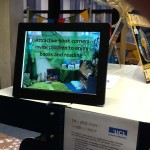Just when I thought that everything was slowing down and there couldn’t be any more Digital MOOCs I have come up with another group that are about to start.
Mastering Academic Research Canvas Network
This is aimed at undergraduate students and those moving to Further education. It seeks to help them understand the requirements of academic research and to give them the skills they will need. This is very much what school and academic librarians do every day, so I look forward to seeing the methods used and what new things I can discover.
Web Accessibility MOOC for Educators
This course is also aimed at the higher education level and is for teachers. It looks to increase their awareness of what is online and how sources can help them in their teaching.
Digital Me University of Derby
The idea behind this seems to be making members of the public aware of the digital world and how they should learn to use it safely. I am hoping this is an extension to the Cyber security course that I undertook recently.
Parenting in the Digital Age
This one basically does what it says. It is aimed to bring parents up to date with the digital world, so that they are aware of what their children do at school and outside of school. It should also cover e-safety, which is a major concern for most parents,
All of these courses are from the provider called Canvas Network, although they are run by a range of universities and other academic institutions. the first two are starting on the 6th July, then there is another later in the month and one in August. What I have found with courses from this provider is that they really stretch the student. The expectation is that you will take part in the discussion groups and there is a lot more in the way of assignments compared to some other providers. I am beginning to find that MOOCs can be quite addictive. It allows people to follow their interests and hobbies as well as giving young people the opportunity of testing whether they enjoy certain topics and if they could envisage studying it at undergraduate level. I an sure that the concept will develop over the next few years and it will be interesting to see where it leads.

